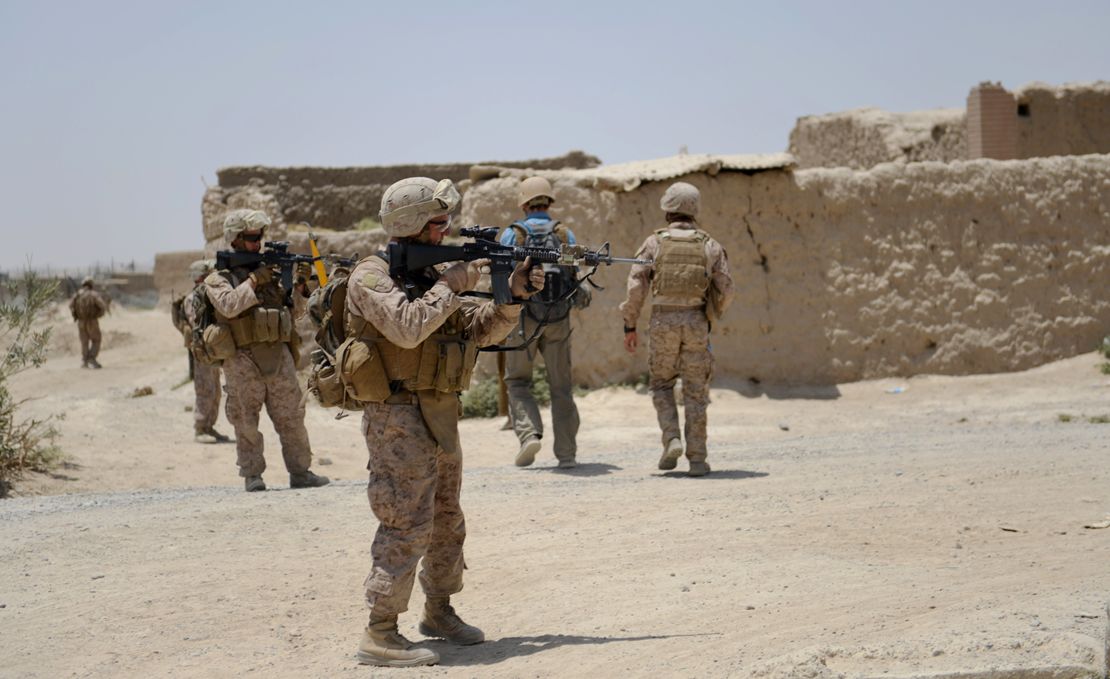Story highlights
NEW: The Afghan military says it's ready to defend the country
Obama announces that by February 2014, 34,000 U.S. forces will be home
80% of registered voters support the president's policy to end the Afghanistan war, poll shows
The White House has been considering a range of troop levels to remain in Afghanistan
President Barack Obama announced in his State of the Union speech on Tuesday night that some 34,000 U.S. troops in Afghanistan will have returned home by this time next year.
The move will reduce the number of U.S. forces in the country by more than half. There are now about 66,000 U.S. troops in Afghanistan.
A Washington Post poll on Tuesday showed that 80% of registered voters support the president’s policy to end the war in Afghanistan.
In January, Obama met with Afghan President Hamid Karzai in Washington, where they agreed to accelerate the military transition in Afghanistan.
Afghan forces will take the lead in combat missions throughout the country starting in the spring, instead of mid-year, as was previously expected.
5 things we learned
Afghan forces are ready
Zahir Azimi, a spokesman for the Afghan Defense Ministry, said National Army forces are “completely ready” to take over the country’s security responsibilities.
“We welcome the announcement of the withdrawal … and we (will) always remember their efforts and sacrifice,” he said. “We are very happy that these soldiers are returning home to their families.”
The Taliban also welcomed the news, saying Western governments “must salvage themselves from the protracted and pointless war in Afghanistan.”
But as expected, the militants continued their call for a complete withdrawal of outside forces.
“The Afghans should be granted control, choice of government and sovereignty of their country,” the Taliban statement said. “If not such then our sacred Jihad will intensify and forge ahead successfully even if one foreign soldier is present in our country …”
Some U.S. forces will remain

The White House has been considering a range of troop levels – from up to 15,000 to none – to remain in Afghanistan once the combat mission officially ends at the end of 2014.
READ: Questions facing Obama about Afghanistan
Those options were submitted by Gen. John Allen, who until recently was the top U.S. commander in Afghanistan. Allen’s final days in that job were marred by an investigation linked to the sex scandal that prompted the resignation of David Petraeus as CIA director.
Allen was cleared of allegations that he wrote potentially inappropriate e-mails to a woman involved in the scandal. He is now the nominee to become the top NATO commander and was replaced in Afghanistan this week by Marine Gen. Joseph Dunford.
More troop reductions ahead
A senior administration official told CNN on Tuesday that in addition to withdrawing 34,000 U.S. troops by next February, more reductions will continue through the end of 2014 as Afghans take full responsibility for their security.
The United States and its partners in the war in Afghanistan have “struck devastating blows against al Qaeda, and Afghan forces continue to grow stronger with 352,000 now in training or on duty,” the official said.
“By the end of 2014, we will responsibly bring our war in Afghanistan to a close,” the official said, adding that Obama made his decision “based on the recommendations of the military and his national security team,” consultations with Karzai and “international coalition partners.”
A key factor for meeting Obama’s plan is the fighting season in Afghanistan, which runs from spring to fall, depending on weather conditions, officials said.
“Commanders will have discretion on pace of this drawdown which will allow them to maintain the force they need through the fighting season,” according to one of those officials.
U.S. withdrawal is ‘tough love’ for disbelieving Afghans
Afghans in lead but U.S. still there
Also on Tuesday, another U.S. official told CNN that the U.S. and NATO alliance will announce that by March, Afghan troops will lead all security in Afghanistan.
That announcement was expected to be made this summer but will now be made within days, the source said.
Afghan forces are leading nearly 90% of operations across Afghanistan.
With Afghan units in the lead, U.S. troops will still be directly involved in combat for months, the official said. American special forces also will remain in far flung outposts partnering with Afghan units.
Opinion: Abandon Afghanistan? A dumb idea
A new general in charge
Dunford will oversee the final two years of the war and the withdrawal of nearly all troops.
At a change-of-command ceremony in Kabul on Sunday, Dunford remarked on the job ahead.
“Today is not about change, it’s about continuity,” he said, alongside Allen and other senior NATO and Afghan officials.
“I’ll endeavor to continue the momentum of the campaign and support the people of Afghanistan as they seize the opportunity for a brighter future.”
Dunford has a reputation among Marines as a thoughtful, calm leader, with more than 22 months under his belt of commanding troops in Iraq.
These changes come amid debate about impending budget cuts that some say would have grave consequences for the military unless Congress acts to avert them by the start of next month.
Sequestration is a series of automatic, across-the-board cuts to government agencies, totaling $1.2 trillion over 10 years. The cuts would be split 50-50 between defense and domestic discretionary spending.
More than $500 billion would be cut from the Defense Department and other national security agencies, with the rest coming from domestic programs, like national parks, federal courts, the FBI, food inspections and housing aid.
Outgoing Defense Secretary Leon Panetta has been a harsh critic of the cuts.
“For those of you who have ever seen ‘Blazing Saddles,’” he said in a recent speech at Georgetown University, there “is the scene of the sheriff putting the gun to his head in order to establish law and order. That is sequestration.”
CNN’s Mike Mount, Emily Schultze and Ashley Fantz contributed to this report.
